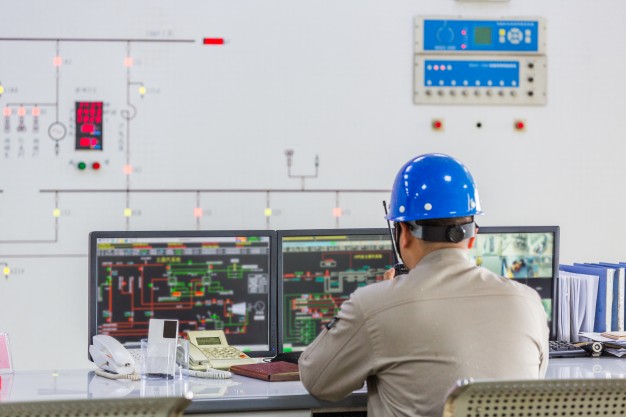

Every business owner aims to reach peak productivity levels. It is a cyclic event: as each employee functions at their ultimate efficiency, the productivity of the company increases. And as the company’s productivity increases, so does the morale of the employees to work harder. Every employee is an essential player in a business, no matter how big or small their contribution may be.
Each employee in a company is like a spoke in a ship’s wheel, and each spoke needs to be tended to in order to increase efficiency. From an employer’s perspective, it is not an easy task to keep their staff motivated and have them deliver the best results without exceptions. However, in today’s age, GPS trackers are being implemented by employers for employee monitoring at all times. Their goal is to expedite the performance of the staff and truncate wastage of time.
As the title suggests, there are two sides to every coin. While a GPS tracker may enable a more productive workforce for the business owner, it may also inevitably lead to a breach in privacy. There is a very fine line between privacy invasion and optimised workflow, and employers using GPS trackers to cultivate an employee tracking system must know how to walk it.
Here, we discuss the potential benefits and drawbacks of GPS tracking for monitoring employees.
Benefits
There are copious benefits of using a GPS tracker for monitoring workers. It helps the employers keep tabs on their employees during working hours to keep a check on their performance and productivity, thus leading to a decline in unproductive abuse of office resources and time.
Increase in employee satisfaction: The greatest advantage that employee tracking brings is a well-organised and planned workflow. And it is apparent that the more organised a business is, the better way employees will function, which in turn will increase the productivity of the company. It showcases a symbiotic relationship: the employee will be satisfied to see the growth of the company, and a satisfied employee will work better, improving the company’s growth.
Increase in employee efficiency: A Vehicle Tracker enables businesses to analyse the routes that their fleet generally takes, and appropriately perform route optimisation to relay faster alternatives. In this manner, the drivers will stay abreast with any obstacles or roadblocks and would end up making their deliveries well within time. The GPS tracking device will be installed in the vehicle for the driver as well, and thus the driver can stay in constant contact with the fleet manager to deliberate about any impending problems or feedback, all the while taking reference from the same information available to the manager.
Whether a business deals with other businesses or directly with the consumers, it is important to maintain a strict timeline while charting out deliveries, for successful customer retention and service. With a GPS tracker, employee monitoring becomes easy. The employee’s efficiency increases, and with it, increases the business’s reputation.
Also read: The Ultimate Guide to Vehicle Tracking System
Increase in employee’s sense of ownership: Implementing GPS trackers in a business instills a sense of ownership into the employees. Employee tracking shows the employer a clear picture of how honest their crew is and how much effort is being put in by each cog in the machine. So, it ultimately dissuades the employees from indulging in any fraudulent activities, thus making them work hard to maintain ethical standards.
Another benefit that comes with GPS trackers is that employees know how to manage and reduce company expenses themselves. When we talk about the freight industry, cost optimisation is highly critical for fuel. There may be times when the driver unknowingly takes routes that are much longer, because he is not aware of a shorter alternative. However, with a GPS tracker, he can manage the company’s fuel expenses by figuring out the optimum route to be taken, all by himself.
Reiterating the previous point, GPS trackers can be an efficient medium to enhance employee performance and can prove to be a motivating factor.
Drawbacks
While we discussed the benefits an employee tracking system has to offer, we must also look at the glaring downside of it: a vector of privacy invasion.
It is justified that an employer needs to monitor the resources he has deployed since a lot of investment goes into hiring and retaining employees. However, when businesses breach an employee’s privacy by keeping a check on them outside of their working hours, it becomes inexcusable.
Chances are that an employee tracking app may be stationed at the employee’s personal phone which will make them vary of this feature. This issue can be tackled if the employer demonstrates to them how to deactivate the tracker when they are off duty.
Moreover, if the staff is oblivious to this constant surveillance to begin with, they will feel uncomfortable and may raise a furore over such concealed monitoring. They might arrive at the conclusion that their employer sees them as undependable and is questioning the efforts that they are putting in. When such instances arise, the overall team spirit tends to die down. Therefore, it is imperative that the employers disclose absolute transparency when investing in a GPS tracker. They should ensure that their employees are made aware of the objective of such supervision to guarantee full cooperation.
The employees in any organisation must feel secure, valued and inspired to take on challenges head on and catapult the company’s productivity to greater heights. And it is the responsibility of a business to make sure that they feel this way.
[CASE STUDY] : How A Major Theft Within India’s Leading Cement Manufacturer Came To Light With LocoNav.